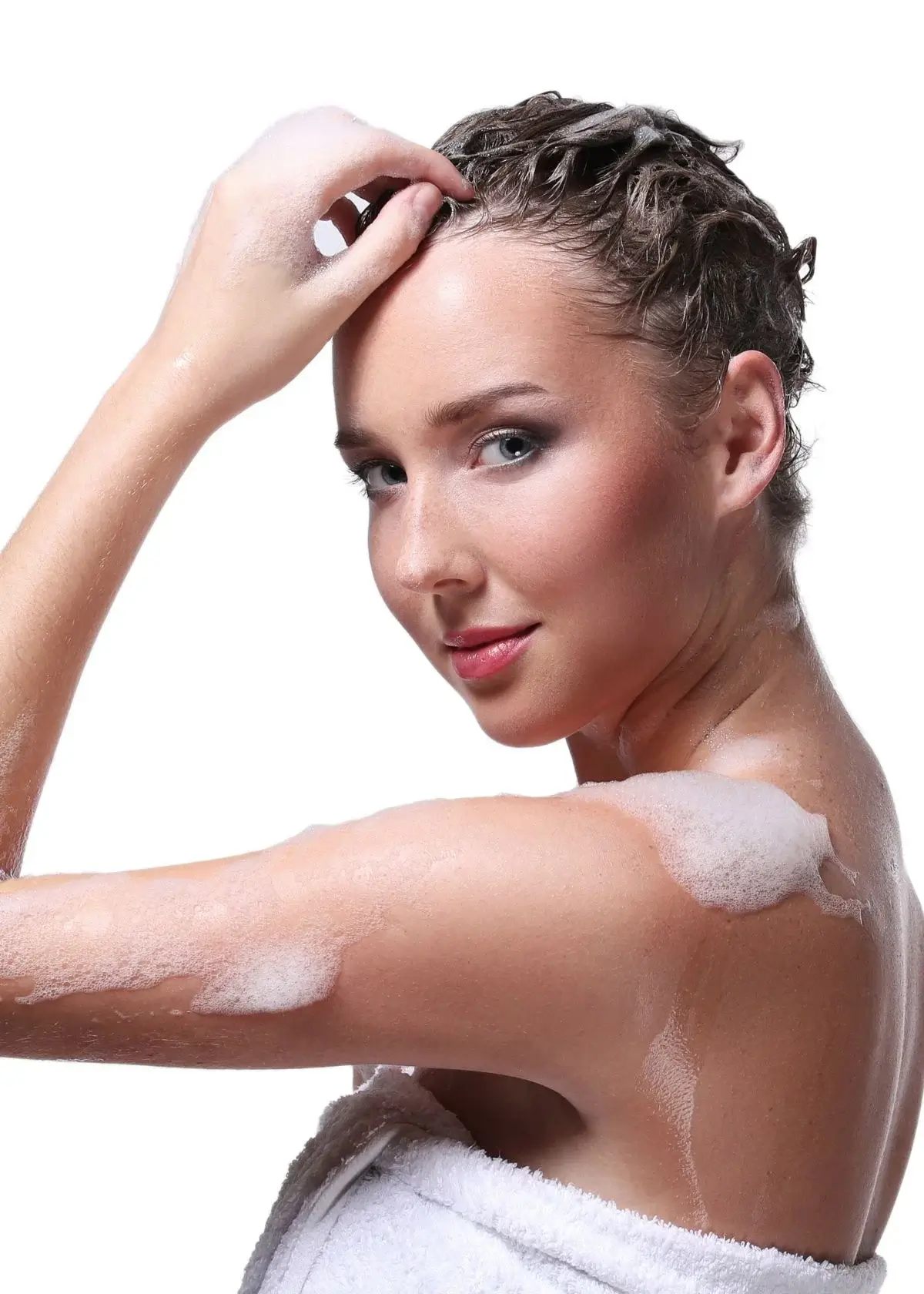We all know that water is essential for life, but when it comes to our hair, not all water is created equal. Hard water, which contains high levels of minerals like calcium and magnesium, can leave behind residue on your hair and scalp, leading to various issues. That's why it's crucial to use a shampoo specifically designed to tackle the challenges of hard water and keep your locks looking their best.
Understanding Hard Water
Before diving into the ingredients to look for in a shampoo for hard water, let's first understand what exactly hard water is and why it can be problematic for our hair. Hard water is formed when water passes through mineral-rich deposits, picking up minerals along the way. These minerals can build up on your hair, causing it to become dry, brittle, and prone to breakage. Further, the mineral buildup can weigh down your hair, making it appear flat and lifeless.
Key Ingredients to Combat Hard Water Effects
- Clarifying agents: Look for ingredients like citric acid, acetic acid, or salicylic acid, which help remove mineral buildup and residue from your hair and scalp.
- Chelating agents: Ingredients like EDTA (ethylene diamine tetraacetic acid) or gluconic acid help bind to minerals in hard water, preventing them from depositing on your hair.
- Moisturizing ingredients: Hard water can strip your hair of its natural oils, leading to dryness and brittleness. Opt for shampoos that contain moisturizing ingredients like glycerin, shea butter, or coconut oil to help restore and retain moisture.
- pH-balancing ingredients: Hard water often has a high pH level, which can disrupt the natural pH balance of your hair. Look for shampoos that contain pH-balancing ingredients like apple cider vinegar or aloe vera to maintain a healthy pH level and promote shine and manageability.
Benefits of Using a Shampoo for Hard Water
Using a shampoo specifically formulated for hard water can bring a multitude of benefits to your hair:
- Healthier hair and scalp: By removing mineral buildup and residue, a shampoo for hard water helps keep your hair and scalp clean and healthy.
- Enhanced shine and manageability: With the right ingredients, a shampoo for hard water can restore shine to your hair and make it more manageable.
- Prolonged color retention: Hard water can cause color-treated hair to fade quickly. Using a shampoo designed for hard water can help protect your color and keep it vibrant for longer.
Tips for Optimal Results
To get the most out of your shampoo for hard water, follow these tips:
- Proper usage and frequency: Follow the instructions on the shampoo bottle for best results. Use the shampoo regularly, but not excessively, to avoid drying out your hair.
- Additional haircare practices: Incorporate other haircare practices to complement the use of shampoo for hard water. Consider using a deep conditioning treatment once a week to add moisture to your hair. Besides, a leave-in conditioner or heat protectant spray can help shield your hair from further damage.
Don't let hard water dampen your hair's natural beauty. With the right shampoo, you can combat the effects of hard water and keep your hair looking its best. Look for shampoos that contain clarifying and chelating agents, moisturizing ingredients, and pH-balancing ingredients to restore your hair's health and vitality. Remember to choose reputable brands and consider customer reviews to find the perfect shampoo for your needs. By taking these steps and incorporating proper haircare practices, you can say goodbye to the woes of hard water and hello to beautiful, lustrous locks.
Embark on a journey to find the perfect shampoo for hard water! Our diligent research has led us to discover the ultimate solution for luscious, healthy hair. With just a simple click, you can unveil your new favorite shampoo—a hair care essential designed to combat the challenges of mineral-rich water. Say goodbye to dullness and residue as this specialized shampoo, enriched with powerful ingredients, revitalizes and cleanses, restoring your hair's natural shine. Elevate your hair care routine by clicking the link and immerse yourself in revitalizing solutions.
What are the common signs of hard water damage to hair?
Identifying the multifaceted impact of hard water on hair involves recognizing a spectrum of symptoms. Beyond the evident dryness, intensified frizz, and increased dullness, one may observe a tangible weighed-down feel. Early recognition becomes the cornerstone for developing a comprehensive and effective hair care routine that not only acknowledges but actively counteracts the nuanced detrimental effects of hard water on overall hair health and aesthetic appeal.

What makes a shampoo specifically designed for hard water different?
Shampoos meticulously crafted for hard water distinguish themselves through intentionally and precisely incorporating specialized ingredients, notably chelating agents or sequestrants. These active components, carefully selected for their unique affinity for minerals, exhibit a sophisticated and targeted ability to bind to these elements, preventing their unwanted deposition on the hair shaft. The formulation of these shampoos extends beyond mere cleansing and clarifying; it orchestrates an active and ongoing combat against mineral buildup, fostering not just cleanliness but healthier, more vibrant hair.

What is the recommended frequency for using a hard water shampoo?
Determining the optimum frequency for incorporating a hard water shampoo into one's routine is a nuanced and highly individualized consideration. General guidance often suggests a weekly application, including this specialized shampoo, which operates as a dynamic and preventive measure against the persistent threat of mineral buildup. However, this frequency is not one-size-fits-all. A crucial aspect involves keen and ongoing monitoring of the hair's response, allowing for adjustments in usage frequency.

How does a chelating shampoo work to remove mineral buildup?
Delving into the intricate mechanics of chelating shampoos reveals a fascinating process. These shampoos operate by including active ingredients purposefully designed to bind with minerals commonly found in hard water. This binding process forms soluble complexes, orchestrating a symphony of molecular interactions that efficiently remove mineral buildup during the rinsing phase. Beyond cleansing, this sophisticated mechanism actively restores the hair's natural luster and texture, effectively countering the adverse effects of prolonged exposure to mineral-rich water.

How should I adjust my hair care routine when moving to a hard water area?
Relating to a hard water area necessitates a thoughtful and strategic recalibration of one's hair care routine. An essential inclusion is the regular and judicious use of a chelating shampoo, implemented weekly, to proactively counteract and prevent the insidious accumulation of minerals. Following this with a hydrating conditioner serves as a dual-purpose intervention, restoring essential moisture and contributing to overall hair resilience. Complementing this routine with periodic clarifying treatments and adopting protective hairstyles further fortifies the hair's resilience, ensuring vibrancy and health despite the challenges posed by mineral-rich water.
Should I avoid certain ingredients in hair care products if I have hard water?
Tailoring the hair care approach in hard water areas extends beyond the choice of products to strategically avoid formulations containing heavy silicones, known antagonists that exacerbate mineral buildup. Opting for sulfate-free shampoos is not merely a trend but a pivotal choice to prevent excessive drying without compromising the effectiveness of the cleansing process. Furthermore, actively seeking hair care products enriched with chelating agents like citric acid or EDTA is a proactive strategy.







